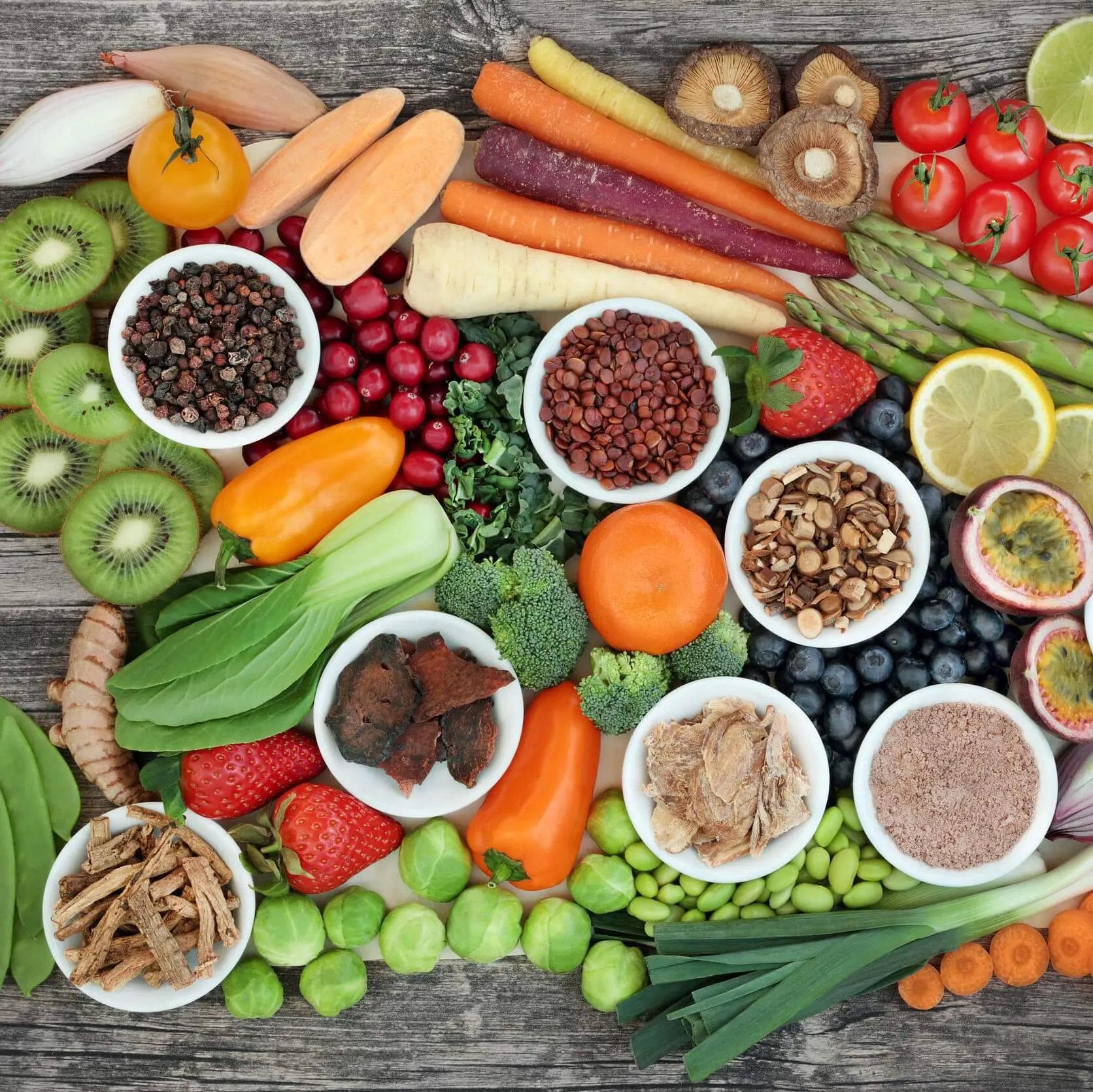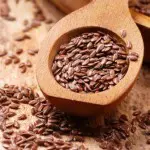
Eating Choices to Lower Cancer Risk – Q&A
Does it seem the more you read and hear about healthy eating for cancer prevention, the more questions you have?
Over the past month and a half, I’ve traveled across the country, giving five presentations on what’s current about diet and cancer prevention. Whether I was speaking to graduate students, dietitian nutritionists and other health professionals, or the public, people who are trying to stay on top of nutrition information find it challenging.
On the premise that a question posed by one person is usually a question for many others, today’s Smart Bytes® is dedicated to addressing some very good questions I’ve been asked during recent presentations.
You don’t have to be at one of my presentations to pose a question: you are welcome to reach me right here with questions you’d like addressed any time. For now, read on….how many of these questions have puzzled you, too?
Is Coffee a Healthy Choice?
An article in The New York Times recently linked coffee to several potential health benefits. Although you may have heard about studies in recent years connecting coffee with lower risk of heart disease, type 2 diabetes or Parkinson’s disease, the possibility that coffee could lower risk of cancer seems particularly surprising to many people.
How would coffee help reduce cancer risk?
Most of the research on coffee’s potential to reduce cancer risk centers around several natural compounds it contains. In laboratory studies, two compounds in coffee (lignans and caffeic acid, which is formed from coffee’s chlorogenic acid) can help regulate cell growth, decrease inflammation and increase self-destruction of abnormal cells. Other compounds when tested in the laboratory affect enzymes that activate and deactivate carcinogens, showing additional potential to help stop cancer before it starts.
Coffee’s association with lower risk of type 2 diabetes and heart disease in large population studies, combined with other research, suggests that the impact these compounds have supporting antioxidant defenses, reducing inflammation and improving insulin sensitivity (thus avoiding the high levels of circulating insulin that seem to pose cancer risk) are likely important.
Does coffee protect against all forms of cancer?
When looking at the overall body of research – not just searching for a single study to support a particular viewpoint – so far we only see links to reduced risk of endometrial cancer and liver cancer. If the suspected effects above are true, then coffee could help protect against several other cancers, too, although we don’t have clear data on that yet. Some research shows lower levels of estrogen available to the body related to coffee consumption; this could help reduce risk of other estrogen-related cancers in addition to endometrial cancer.
What about coffee and breast cancer risk?
The most recent evaluation of studies on breast cancer risk in the American Institute for Cancer Research (AICR)/World Cancer Research Fund (WCRF) Continuous Update Project found there was too little data on which to make a conclusion. Since then, an analysis that combined the results of 37 population studies found that coffee might be weakly associated with reduced breast cancer risk for postmenopausal women, but this link seems clearest with amounts of coffee beyond what most women consume; drinking six to eight cups of coffee per day was linked with 6% to 8% reduced risk. No relation to premenopausal breast cancer was seen. One helpful conclusion is that there was no sign supporting some women’s fears that caffeine could increase breast cancer risk. An area for further investigation was found in noting that among women who were BRCA1 mutation carriers, compared to those who consumed least coffee, those who consumed highest amounts had a significant 31% lower risk of breast cancer.
Does the type of coffee matter?
Decaf coffee shows slightly reduced levels of chlorogenic acid, one of the compounds thought to be protective. Overall, however, studies that tie coffee to reduced cancer risk do not support any difference between decaf and regular coffee. It’s possible that differences in coffee roast could change coffee’s effects, since darker roast coffees have higher levels of a compound known as NMP (N-methylpyridirium) that may further boost body antioxidant defenses, but that is a completely theoretical difference for now. Choose the type of coffee you like.
One caution in making that choice: Don’t let the view of coffee as “healthy” give it a halo that makes a 500 to 700 calorie drink made with sugar-laden flavors and whipped cream seem healthy. If your choice of coffee leads to an unhealthy weight, that’s increasing your risk of at least 10 forms of cancer.
Does Flaxseed Affect Health?
Some people are interested in adding flaxseed to their daily eating habits as a step that may help lower blood cholesterol. Others are considering flaxseed as a food ultra-high in fiber to maintain digestive tract regularity or as part of a strategy to reduce colon cancer risk. Yet many wonder about whether flaxseed affects risk of other cancers and whether it’s safe for cancer survivors.
Do flaxseed’s phytoestrogens increase risk of breast cancer?
Recommendations for caution about flaxseed stemmed from concern that compounds it contains called lignans — classified as “phytoestrogens” – might act like human estrogen, promoting development of breast cancer. However, studies now show that although lignans’ chemical structure is like estrogen, lignans are broken down in the digestive tract to compounds known as “enterolignans”. These enterolignans (enterolactone and enterodiol) don’t necessarily act like estrogen in the body.
Since people vary in how they digest flaxseed lignans and absorb the enterolignans formed from them, people consuming the same amount of flaxseed can have different levels of circulating enterolignan compounds. Though not available in all studies, many researchers consider these blood levels a more accurate basis for evaluating whether there’s any link between flaxseed consumption and cancer risk. Research now suggests that if flaxseed does affect breast cancer risk, it’s likely to be protective, especially in post-menopausal women. In a study among German post-menopausal women, compared with those who had lowest levels, women with highest blood levels of enterolactone had 35% lower risk of breast cancer after adjusting for standard breast cancer risk factors (including alcohol consumption and a measure of obesity). In several studies, protection seems especially likely against ER-PR- breast cancer (64% lower risk in those with highest enterolactone levels in these German women). No sign of increase in risk of ER+PR+ breast cancer is evident, though the reduction in risk may be less (31% lower risk in this study).
How might flaxseed affect cancer risk?
Flaxseed contains fiber, lignans and a plant form of omega-3 fat (known as ALA) that could each affect cancer risk. Based on animal studies, flaxseed seems to decrease cell growth and increase self-destruction of abnormal cells. In a clinical trial of postmenopausal women with newly diagnosed breast cancer, compared to those in a control group, women who consumed 25 g ground flaxseed (about a quarter-cup) daily for one month showed decreased tumor cell proliferation, decreased HER2 expression and increased apoptosis at the time of surgery. Apoptosis, the self-destruction of abnormal cells, is a key part of normal regulation of cell growth. HER2 leads to growth factor signaling pathways that play a role in regulation of cell growth and cancer development. Estrogen and progesterone levels and receptor activity did not change in this group of women. In other studies, flaxseed has led to shifts to a form of estrogen that is less cancer-promoting.
What about cancer survivors receiving anti-estrogen therapy?
When being treated for cancer or any medical condition, it’s important that you always discuss eating habits and use of functional foods or supplements with your doctor and personal healthcare team. As we get more research, answers of the past may change.
In mice, flaxseed inhibited growth of human estrogen-dependent breast cancer and enhanced the tumor-fighting effect of tamoxifen. In a small study that included healthy women and women receiving tamoxifen for breast cancer, flaxseed showed no signs of interfering with tamoxifen, and seemed to offer some potential benefit in reducing cancer’s tendency to metastasize (by increasing an anti-angiogenesis factor called endostatin). In another small pilot study, involving an anti-estrogen medication that works through a different mechanism, flaxseed did not change aromatase inhibitor effects on breast tumor characteristics or relevant hormone levels, although further work with more subjects is needed.
We need more data from human studies, but at this time, it looks as though flaxseed is unlikely to interfere with anti-estrogen therapy, and might even enhance its effectiveness.
What Eating Habits Best Lower Cancer Risk?
You may hear a report from one study that finds a pesco-vegetarian diet “best” for reducing risk of colorectal cancer, and another that links the DASH diet with lower colorectal cancer risk. But what about the study that links a Mediterranean-style diet with lower colorectal cancer risk, and the analysis that links Mediterranean-style eating patterns with lower overall cancer incidence and mortality?
How can these studies be compared to find what’s really best?
The studies that link these various eating patterns with lower cancer risk were each conducted in different groups of people using different ways of evaluating eating habits. Asking which pattern is best and expecting a single answer is missing the big picture. The consistent answer among many such studies is that compared to a “Western diet” – low in vegetables, fruits and whole grains; high in red meat, refined grains and sweets – we tend to see lower cancer risk with some form of plant-focused eating pattern. When eating habits emphasize nutrient-rich whole plant foods and minimize foods that supply “empty calories”, there are many ways to eat healthfully.
Bottom Line:
Keep a big picture view of food choices for a healthy eating pattern
Evidence now suggests that two foods – coffee and flaxseed — once avoided by some people because of fears they might pose a cancer risk, now seem quite safe, and perhaps even help reduce cancer risk. As we consider potential cancer risk or protection from individual food choices like these, however, we must not lose sight of the big picture. Research now suggests that to promote good health, our overall eating pattern is much more important than any individual nutrients or even individual “good” or “bad” foods. Our eating habits are comprised of the collection of individual food choices we make all day long, and those choices add up to make a difference. Since there are a variety of ways to create healthful, plant-focused eating habits, you can enjoy exploring healthy choices that fit your individual eating preferences and lifestyle.
Let’s talk! You can work toward more healthful eating by making one or two habit changes at a time. I’d love to hear about changes you’ve made (or are trying out) to create an overall healthy eating pattern! Please share in the Comments section below…. Let’s support one another on this journey to health.
The American Institute for Cancer Research (AICR) website’s section called Foods that Fight CancerTM provides a summary of current research — what we know and what we don’t — about a variety of foods, as well as tips and links to recipes for using them. Coffee and Flaxseed are among the topics covered.
For health professionals seeking more background, the AICR In Depth series of research reviews includes one on Flaxseed and Breast Cancer (published 2010).
Bøhn SK et al. Coffee and cancer risk, epidemiological evidence, and molecular mechanisms. Mol Nutr Food Res. 2014; 58(5):915-30.
Arab L. Epidemiologic evidence on coffee and cancer. Nutr Cancer. 2010; 62(3):271-83.
Jiang W et al. Coffee and caffeine intake and breast cancer risk: an updated dose-response meta-analysis of 37 published studies. Gynecol Oncol. 2013;129(3):620-9.
Zaineddin AK et al. Serum enterolactone and postmenopausal breast cancer risk by estrogen, progesterone and herceptin 2 receptor status. Int J Cancer. 2012; 130(6):1401-10.
Thompson LU et al. Dietary flaxseed alters tumor biological markers in postmenopausal breast cancer. Clin Cancer Res. 2005; 11(10):3828-35.
Chen J et al. Dietary flaxseed enhances the inhibitory effect of tamoxifen on the growth of estrogen-dependent human breast cancer (mcf-7) in nude mice. Clin Cancer Res. 2004;10(22):7703-11.
Åberg UA et al. Tamoxifen and flaxseed alter angiogenesis regulators in normal human breast tissue in vivo. PLoS One. 2011; 6(9): e25720.
McCann SE et al. A Pilot Study Comparing the Effect of Flaxseed, Aromatase Inhibitor, and the Combination on Breast Tumor Biomarkers. Nutr Cancer. 2014; 66(4):566-75.
8 Comments
Leave a Comment
Published : June 2, 2015
Tagged: breast cancer, cancer prevention, cancer risk, coffee, DASH diet, flaxseed, healthy diet, healthy eating, Mediterranean diet, plant-based diet, reducing cancer risk, vegetarian diet
Meet the author/educator
I Take Nutrition Science From Daunting to Doable.™
As a registered dietitian nutritionist, one of the most frequent complaints I hear from people — including health professionals — is that they are overwhelmed by the volume of sometimes-conflicting nutrition information.
I believe that when you turn nutrition from daunting to doable, you can transform people's lives.
Accurately translating nutrition science takes training, time and practice. Dietitians have the essential training and knowledge, but there’s only so much time in a day. I delight in helping them conquer “nutrition overwhelm” so they can feel capable and confident as they help others thrive.
I'm a speaker, writer, and nutrition consultant ... and I welcome you to share or comment on posts as part of this community!





Great article! Thank you for posting!
Thank you for your article on ‘how might flaxseed affect health’. As one who eats flaxseed regularly, your aricle mainly mentioned the affect on women’s health. Is there any difference for a man? eg prostate risks.
Many thanks
Dafydd
Great question, Dafydd!
There is a lot of interest in how flaxseed’s ALA fatty acid or lignans (or both) might help decrease risk or slow progression of prostate cancer. Animal studies do show decreased growth and spread of prostate cancer with flaxseed, but research is still much too limited to know whether this could work in humans. Two small studies of men with prostate cancer found that those who consumed about a quarter-cup of flaxseed daily for a month before surgical removal of their prostate showed decreases in a measure of prostate cancer cell growth. However, the studies were too short to be able to see if flaxseed had any effects on clinical cancer outcome, and a recent study suggests that measuring cancer cell growth rates in a laboratory cell culture might not accurately show what happens inside the body. So bottom line: there’s potential benefit, but we await clearer answers.
Karen
Many thanks for your helpful response. As one who has chronic prostatitis and BPH, I was just concerned that flaxseed might be doing more harm than good if estrogen was produced – but as you have stated the compound produced when the body breaks down flaxseed is enterolignan. I will therefore carry on with my flaxseed.
I know that cooking greens in a little oil helps the caritonoids become more available, but what about doing a massaged kale salad? Would that help or does it have to be cooked? Thank you!
Good question, Kim. The amount of carotenoids we absorb from greens and other vegetables seems to be affected by several factors. Oil, whether in cooking, in a salad dressing, or added to another food in the same meal, increases how much of the carotenoids we absorb. And it doesn’t take much — 3/4 of a teaspoon is enough to make a difference. Cooking breaks down cell walls, thus also increasing the carotenoids we absorb from these vegetables. I’m not aware of studies directly comparing how much we absorb from equal portions of a vegetable like kale cooked with oil versus in a salad. To me, however, the important point is to find a variety of ways to enjoy these nutrient-rich vegetables often. The salad you describe sounds like a great option!
Thank you….For the response! A recent collard salad:
Thinly sliced collards (I used 1/2 a bunch). Diced red pepper, a little chopped sweet onion. Dressed with tarragon vinegar, Extra-virgin olive oil, honey, salt and pepper–massage dressing into collards for about a minute, you cal also use kale. Very simple and a good change from cooked collards.
Sounds delicious! Thanks for sharing this, Kim.